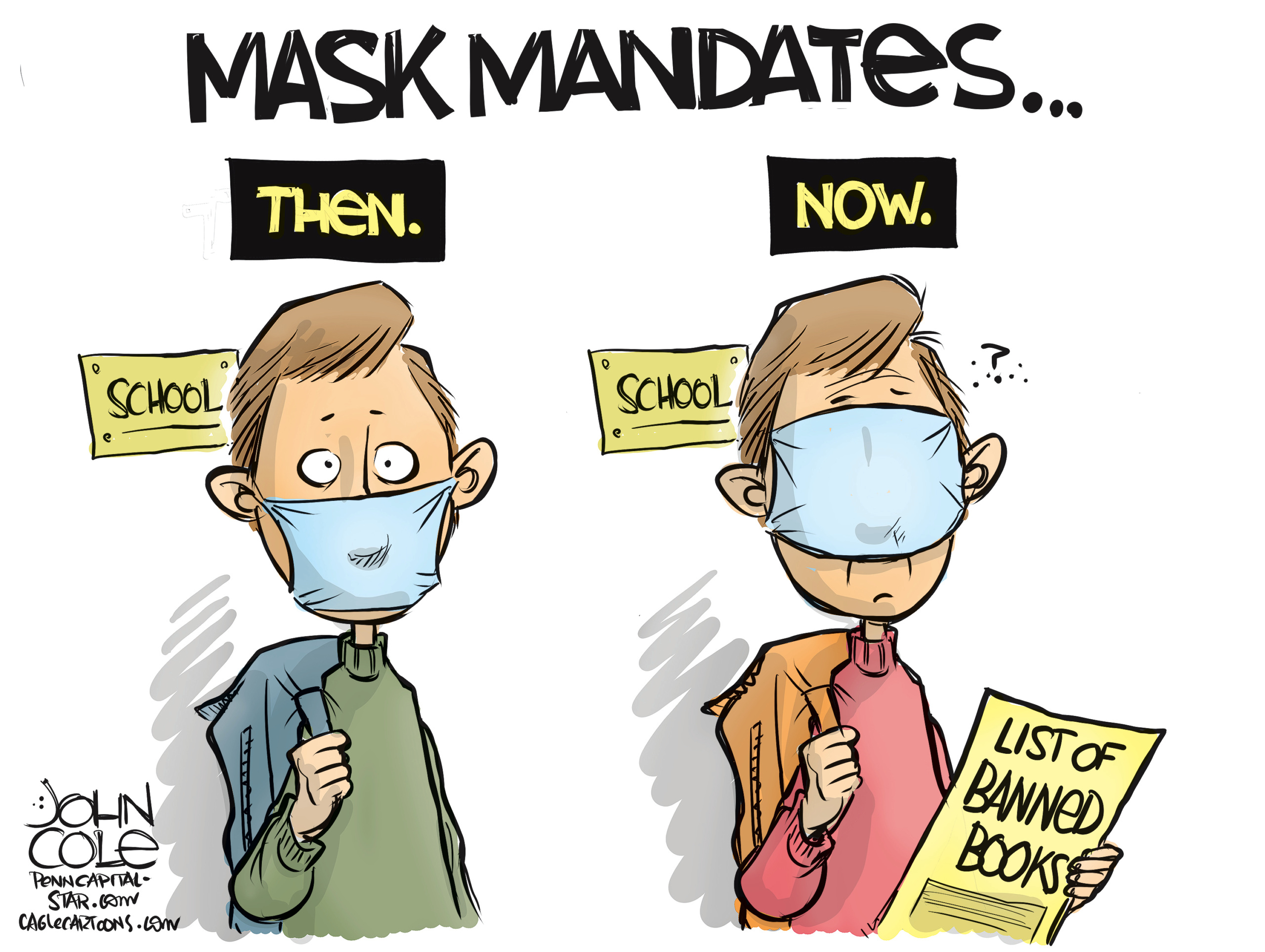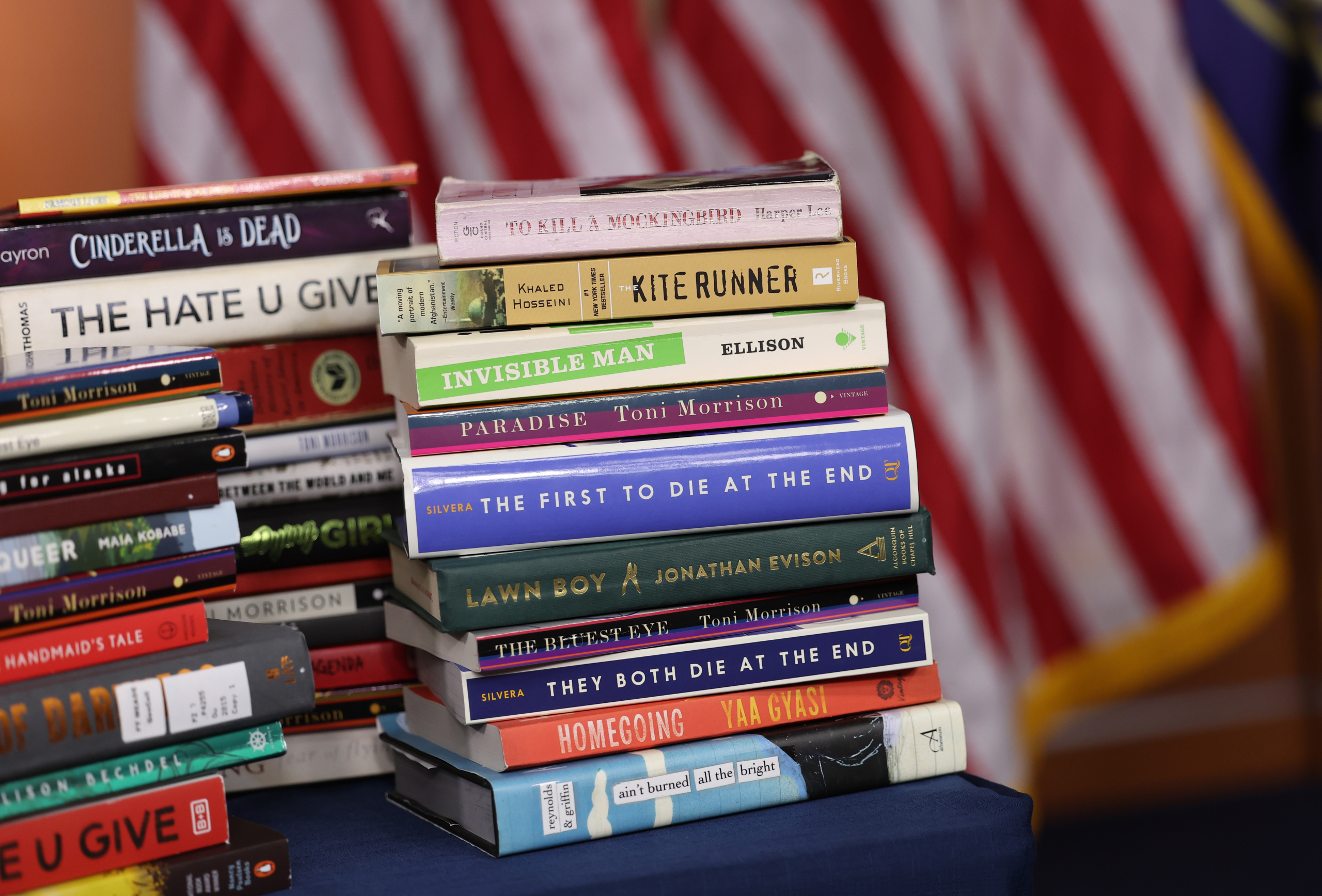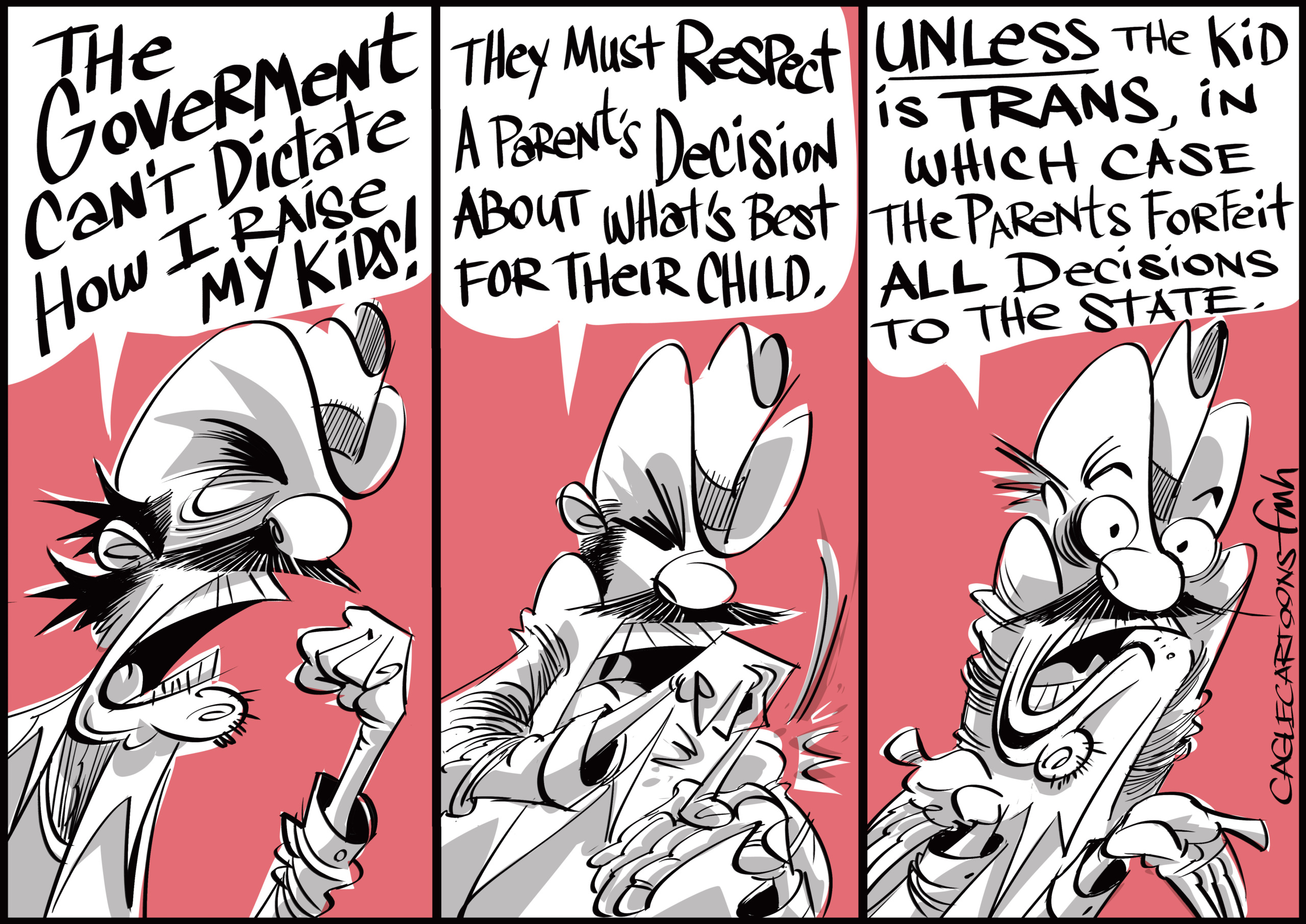Editor’s Note: Church & State is proud to present three articles written by members of Americans United’s Youth Organizing Fellowship, a special program designed to amplify the voices and activism of young people. For more information about the Fellowship, visit www.au.org/youthfellows/.
Making the connection: Young people understand that church-state separation is crucial to social justice, equity and fairness
By Camille Serrano
Throughout AU’s Youth Organizing Fellowship, fellows are encouraged to launch a year-long project revolving around church-state separation. It has been a recurring issue for fellows to come across people who believe church-state separation is an “old people’s issue” and believe it is “no longer relevant” today.
For my project, I wanted to destigmatize these ageist myths about church-state separation by leading a research project that examines the impact of church-state separation on youth across the country.
From November 2022 through January 2023, I used a mixed-method approach to gather quantitative and qualitative data to learn how church-state separation (or lack thereof) is affecting youth. In order to gather this data, participants were asked to complete an online survey and a 30-minute, one-on-one interview to describe their experiences.
I surveyed current members of the AU fellowship. Participants reside in a variety of states, including Texas, Illinois, Georgia, New Jersey, South Carolina and Massachusetts. The ages of participants range from 20 to 23 years old and they represent a spread of religious beliefs and none, including Christian, Presbyterian, agnostic, non-religious and atheist. The majority of participants used she/her/hers pronouns (71.4%) and the minority of participants (28.6%) used he/him/his pronouns.
I had the opportunity to learn about the lived experiences of participants and how religion is being weaponized to infringe on the safety of historically marginalized communities. One participant decried “My faith being twisted by nationalist Christianity that is not rooted in the religion itself.” For the question, “In the city you currently reside, do you see a clear separation of church and state?” 57.1% of participants answered “no.” Moreover, for the question, “How often is church-state separation mentioned in advocacy spaces?” 85.7% of participants reported it was “rarely mentioned.”
Participants also shared their thoughts on the misuse of religion to harm others.
“Though I do not think religious people intend to do harm, I think misguided people have been weaponizing policy to ‘condemn’ and marginalize certain groups,” explained one participant. Another participant stated, “There are certain locations that are off limits due to the violence … I’ve feared being ostracized due to now having certain views on things such as reproductive rights.”
After the overturning of Roe v. Wade, many participants expressed concern about the government attempting to “control women and police bodies with uteruses.” It is jarring to report 85.7% of participants showed fear for the future.
The results showcase the need for church-state separation for religious equality and safety for youth today.
To enact change, participants voiced a variety of ways we can advocate for religious freedom. Common themes include building alliances, advocating for the Do No Harm Act and removing coercive forms of religious language, imagery and practices from our government.
While our identity markers can be used against us, one participant shared how a large part of organizing is creating relationships, remarking, “I am able to connect with different groups mostly because of my lived experiences.” It is empowering to learn that harnessing one’s identity markers is a game-changing tool in building coalitions, especially when advocating for a national issue like church-state separation.
Issues such as reproductive rights and LGBTQ+ rights are relevant to young people and will continue to impact youth until we have fuller church-state separation. We must shield the American principle of freedom of religion, as church-state separation underscores many rights that are at stake for marginalized communities. Defending the separation of church and state would allow people of all ethnicities, genders, ages, abilities, classes and religions (or none) to come together and believe or not believe as we choose.
After completing this project, I am hopeful that the need for church-state separation will be recognized on a national level as the Americans United Youth Organizing Fellowship continues investing in youth and organizers uniting to build a stronger democracy. Let this research serve as a platform of social change that brings together people of all religions and none to advocate for freedom without favor and equality without exception.
Camille Serrano is a queer Korean Filipina organizer from Buena Park, Calif. Since graduating from UCLA and Fullerton College, Camille has partnered with several colleges to provide free programming centered around abortion access, educational accessibility and LGBTQ+ rights.
Banned! Are Florida’s restrictions on books a Christian Nationalist model for every state?
By Monica Smith
Florida has become a hotbed of far-right legislation. Since 2018, the state has introduced a wide range of discriminatory policies that aim to punish minority groups. These bills have become a blueprint for Christian Nationalists throughout the country to try to pass in other states.
One of their biggest battlefields is public education, and Christian Nationalists are actively succeeding in completely altering the education system in Florida. One of the latest attacks has been on school libraries, which have been targeted fiercely by book bans.
The assault began in March of 2022 when legislation known as HB 1467 was signed into law by Gov. Ron DeSantis (R). The bill created new guidelines that have made it far easier to ban books in schools. Proponents said it would address explicit content such as pornography; however, this was already banned in schools. Instead, the bill is being used to remove LGBTQ+ and African American history from schools. It now takes just one complaint of something being “inappropriate” for a book to be pulled from a school or even from an entire county system.

By John Cole via CagleCartoons. Used with permission.
This is a narrative that Christian Nationalists around the country have pushed, and in Florida they are succeeding in getting inclusive content removed.
In Duval County alone, where I live, approximately 176 books have already been removed from classrooms since the bill was passed. The Duval County Public School system and far-right legislators claim that the removed books are not banned but are only under review. However, until books are approved by a school media specialist, they must be taken out of classrooms, which is essentially a ban.
Furthermore, the process for a book to be approved can take time, since a school media specialist must individually read and sign off on each book. In many Florida districts, these positions are severely understaffed, which lengthens the delays.
In addition, there are no clear guidelines in place for specialists to follow, which means the status of a book can vary wildly between school districts and counties. The fate of a book falls on schools’ media specialists and their interpretation of what is appropriate for children.
The bulk of these bans target the LGBTQ+ community, with several books that simply include or depict queer relationships being the sole reason books were removed. LGBTQ+ literature is being labeled as inappropriate for children, which correlates with the rise in LGBTQ+ violence in the state. Instead of helping kids, these book bans harm them; young people deserve to see themselves reflected in a library’s books.
African American history is also being targeted. Books that depict civil rights activists, such as Rosa Parks and Martin Luther King Jr., have been removed from schools. Children’s books that depict the civil rights movement already are edited to present the history in a digestible format for young children to understand. Under the new laws, this crucial history is being reimagined as actively harmful for kids to learn about, and as a result, that history is simply being removed from school libraries. Books that depict Asian American, Native American, Latinx American and other minority experiences are also being banned or are sitting in review throughout the state.
The spate of book banning comes at a challenging time for Florida’s education system. The state was already dealing with an education crisis due to COVID-19, and the bans only exist to widen the education gap in Florida. The state continues to rank lower nationwide in reading and math abilities. Genuine education reforms are being ignored as the state focuses on removing minority voices from education. The results could take years to play out, but Florida’s current path, which emphasizes indoctrination over education, does a disservice to its kids.

Inappropriate? A selection of the books banned in Florida schools (Photo by Kevin Dietsch/Getty Images)
Several organizations are working to combat these book bans, including the American Library Association, which tracks which books have been banned nationally; EveryLibrary; the American Civil Liberties Union; and the Urban League. Local bookstores are also protesting the bans by creating displays of targeted books and actively hosting community events to connect children with these titles.
Since its founding more than 75 years ago, Americans United has opposed religiously based censorship. AU believes that young people in Florida, and every state, should have the right to read and learn without interference from Christian Nationalists who fear knowledge, inclusion and progress.
Monica Smith is an undergraduate student at the University of South Florida double majoring in political science and history. Monica’s advocacy focuses on LGBTQ+ rights specifically within the state of Florida.
The power of stories: To stop the attacks on transgender Americans, we must lift up our voices
By Kendall Kalustyan
Storytelling is a powerful tool in progressive advocacy. My name is Kendall Kalustyan (he/him/his). I am 22 years old and a recent graduate of American University. I love music, I drive like an old man – and I happen to be transgender.
In my professional career, I have spent the greater of the past two years fighting anti-transgender legislative attacks in Alabama and Texas and now at the federal level.
Over the past three years, there have been more bills than ever recorded in U.S. history attacking the transgender community. In 2023 alone, there are 340-plus anti-LGBTQ+ bills being introduced in state legislatures.
These bills propose to decimate transgender people’s rights to access health care, athletics, restrooms, education, military service and safety in public. By the end of the 2023 legislative session, it is estimated that roughly 20 states will have banned medically necessary, age-appropriate and life-saving gender-affirming care practices.

By John Cole via CagleCartoons. Used with permission.
This unprecedented legislative attack would appear antithetical as more Americans than ever, particularly Gen Z, are identifying as LGBTQ+. One step forward, three steps back. The growing demographics have sparked an opposition movement that is aggressive and fanatical beyond my wildest imagination.
Shamelessly, anti-transgender lawmakers and political figures boast a national platform of hate. Recently, at the Conservative Political Action Coalition Conference, commentator Michael Knowles set an agenda of eradicating “transgenderism” from public life. Historically, pledges from political institutions to purge an entire population have not ended well. And yet, I still find myself needing to beg people to care.
Throughout my adolescence, my transition was entirely social, as it is for the vast majority of transgender youth. This meant experimenting with different clothing, hairstyles and personal pronouns. It is a grave misconception and inaccuracy spread by lawmakers pushing for gender-affirming care bans that all transgender youth are undergoing a medical transition.
Growing up was not easy. It is due to the grace of a few friendly school counselors, teachers, therapists and my parents that I have become a successful adult. Those are the same resources that anti-transgender lawmakers seek to erase with “Don’t Say LGBTQ+” and forced-outing education laws, such as HR 5, the Parents Bill of Rights that passed the U.S. House of Representatives.
It is not lost on me that one in four transgender youth will attempt suicide during those same adolescent years that I struggled through. The mental health implications of these anti-trans policies follow transgender people to their adult lives as well. I would be remiss not to mention my former colleague, Henry Berg-Brousseau, a vibrant, 24-year-old transgender activist from Kentucky who died by suicide last December.
Now, as an adult beginning my medical-transition journey, I am visibly trans. This means that when I am walking to Trader Joes to get my groceries for the week, or in my Uber trying to get home safely at the end of the night, I am recognizably different. In a time when lawmakers are openly calling for my eradication, that exposes me to a host of violence in public life. Violence that I have experienced firsthand. I am trying to keep my head up, while also knowing there is an enormous neon target on my back. As resilient as I am, I am also scared and exhausted.
Frequently, when I tell my peers about the legislation passing at alarming rates across the U.S., they respond well-meaningly and say, “Well, don’t ever move to that state!” But protecting me, the one transgender person they know and love, offers no solution to the crisis at hand.
So, let me offer a few solutions that we all should be advocating for:
Pass The Do No Harm Act And Equality Act: One of the main tactics of anti-transgender lawmakers is using religious freedom as a license to discriminate. In early March, the House Education and Workforce Committee was debating HR 734, a proposed federal law that would strip transgender girls of their right to participate in athletics. During the bill markup, several lawmakers cited God and their own personal religious beliefs as their rationale for passing this legislation.
Some legislators would go even further and codify religion-based discrimination into law. This is why we need the Do No Harm Act. The Do No Harm Act would protect religious freedom while ensuring that it cannot be misused to harm others. Specifically, the Do No Harm Act would restore the Religious Freedom Restoration Act to its original intent – to protect religious exercise without infringing on the rights of others.
Additionally, the Equality Act would strengthen legal protections against discrimination on the basis of religion in public accommodations. More than 120 faith-based organizations have endorsed the Equality Act, as have at least 17,000 individual faith leaders from across the country.
Amplify transgender voices: To stop legislative attacks on the transgender community, I ask you to share my story. If you have not met a trans person before, now you have met me. Contact your representatives and tell them to support the Do No Harm Act and Equality Act. Tell your lawmakers that you do not support anti-transgender legislation and that it is time to stop these blatantly hateful attacks on transgender Americans.
Kendall Kalustyan is a recent graduate of American University.


